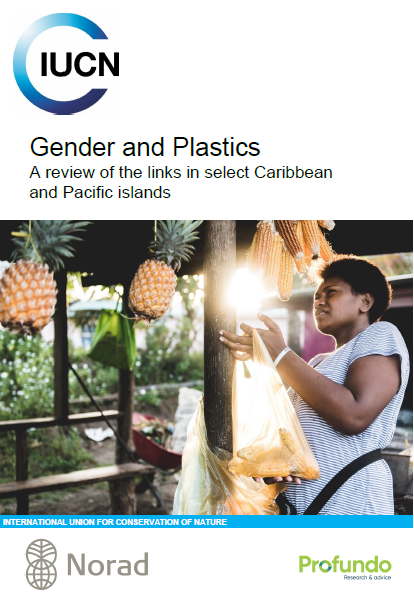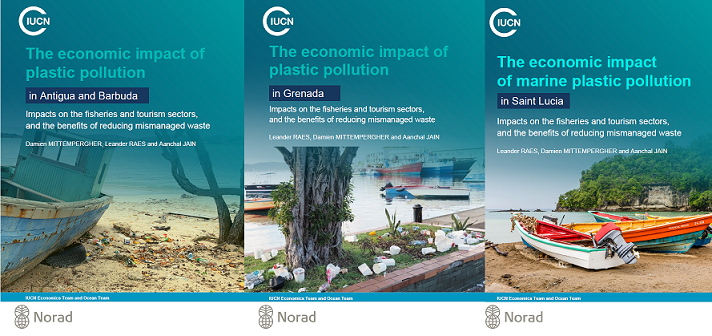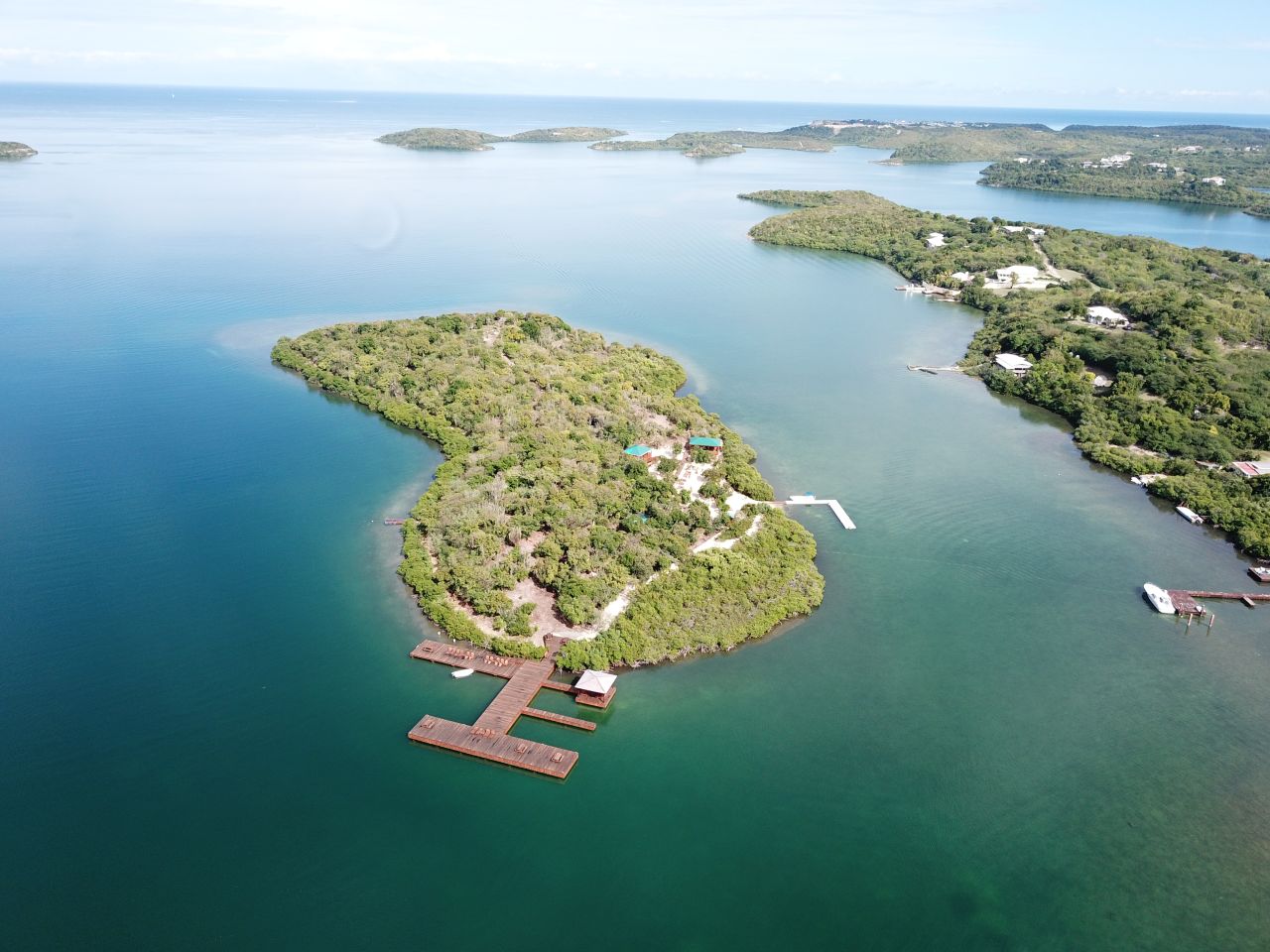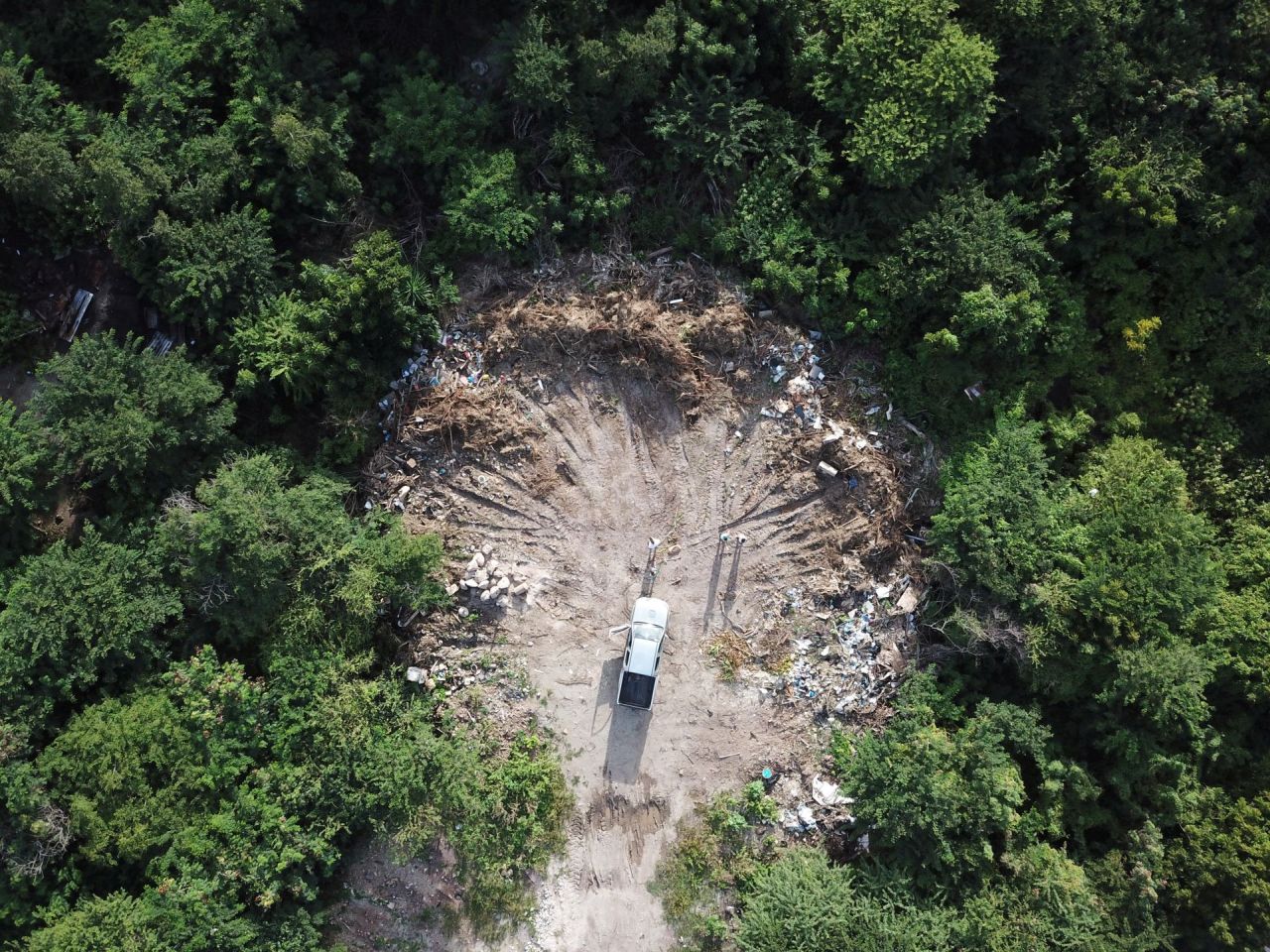Exploring key human rights issues arising from plastic pollution in the tourism, fisheries, and waste management sectors - through a gender lens
A new report from the IUCN Plastic Waste Free Islands project answers the question, “What are key human rights issues arising from plastic pollution in the tourism, fisheries, and waste management sectors in the PWFI islands and how do these issues impact men and women differently?”
The IUCN Gender expert team notes, “Gender equality and equity are matters of fundamental human rights and social justice – and prerequisite for fully realizing environmental goals.” This is important when analysing the effects of plastic pollution on human health, ecosystem health, governance issues, and how people working in some sectors, including the informal economy, are more negatively impacted than others.
To inform gender-responsive programming for the Plastic Waste Free Islands project, IUCN commissioned a study to provide an analysis of plastic pollution in the tourism, waste management, and fisheries sectors on islands in the Caribbean (Antigua and Barbuda, Grenada, and Saint Lucia) and in the Pacific (Fiji, Samoa, and Vanuatu).
Key conclusions and recommendations to further mainstream gender into the objectives and activities of IUCN’s plastics programme work were to:
- Draw from existing guidance and best practices at the intersections of gender equality and plastic pollution
- Address the research and information gap for the link between gender equality and plastic pollution
- Empower consumers, both men and women, to contribute to behaviour change
- Go beyond the bags
- Guarantee a place at the table for women in the informal economy
- Engage leaders working on the advancement of women’s rights and build capacity of those on the ground
The study delivers a socioeconomic and sociocultural analysis of the gendered power dynamics, opportunities, and constraints in the context of plastic pollution in the relevant sectors. Discussions of plastic waste legislation are now gaining ground at the national, regional and international levels – especially as there are ongoing negotiations to develop an international legally binding instrument on plastic pollution, including in the marine environment. Because of this, there is an important opportunity to ensure that considerations of gender and gender-sensitive approaches are integrated into upcoming policies, technological alternatives, and other solutions to the challenges faced by people in the Pacific and Caribbean.
The full study is online here.
 Photo: IUCN
Photo: IUCN
About Plastic Waste Free Islands
In 2019, with support from the Norwegian Agency for Development Cooperation (Norad), IUCN launched the Plastic Waste Free Islands (PWFI) project, as part of its global Close the Plastic Tap Programme. PWFI focused on three islands in the Caribbean and three islands in the Pacific. Implemented in Fiji, Vanuatu and Samoa in Oceania and Antigua and Barbuda, Saint Lucia and Grenada in the Caribbean, the project promoted island circular economy and demonstrated effective, quantifiable solutions to address plastic leakage from Small Island Developing States (SIDS).
Links for more information
IUCN Gender and Environment Resource Centre
IUCN Plastics
Profundo Research and Advice



